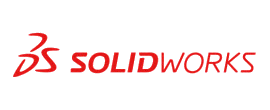Aerospace Design Engineer
December 14, 2022 2024-10-17 15:11Aerospace Design Engineer
Aerospace Design Engineer Certificate Program
Build job-ready skills to help prepare you for a new career or role. Learn the essential skills needed to design aerospace components using the design applications used by aerospace manufacturer. Get started and create your custom learning path now!

Certificate Program
In-Depth Courses
Design Essentials
Advanced Topics
Overview
The Aerospace Engineering Course features all the topics you need to build software-based aircraft, and includes a primer on aerospace engineering fundamentals for those who aren't already familiar with the subject matter. This course is taught by highly educated grads, who also happen to be seasoned aeronautical/design engineers who have worked on different Government and individual project at a very high scale.
Topics
Target Audience
Additional Features Included
Benefits
Companies Employing Role





basically any manufacturing company.
Course Program Details
iGET IT presents a Certification Program in Aerospace Design Engineering. This program provides you with the most flexible learning environment possible. This program is offered as a self-paced program often referred to as asynchronous online program which is time-independent, meaning that it can be accessed 24*7 within the defined tenure.
This program can be accessed from multiple devices which make it easy to learn on the go. Lectures that are pre-recorded or slide presentation with voice-over commentary and industry level based basic to advanced level assessments that foster student to student interaction and help to improve the learning curve.
The Aerospace Design Engineer Program comes in two options that are shown below.
Choosing Your Training
As part of the Aerospace Design Engineer Role, there are two levels of training you can select.
The Product Design Essentials package is designed to teach users the essentials of using a selected CAD software application. The learning path will take you through a fundamental understanding of the user interface and basic functions, creating a sketch, working with part models, assemblies and other essential topics.
The Advanced Topic package provides access to all the remaining CAD topics in your selected software. This will include specialized and advanced topics such as MBD, Routing, Simulation and others.
After reviewing your options below, select the Get Started button. This will take you to our SkillAdvisor and guide you through the configuration process. Based on your configuration, you will be presented a special price offering!
Tools




Getting Started with SkillAdvisor
If you are looking for an customized plan with multiple courses.








